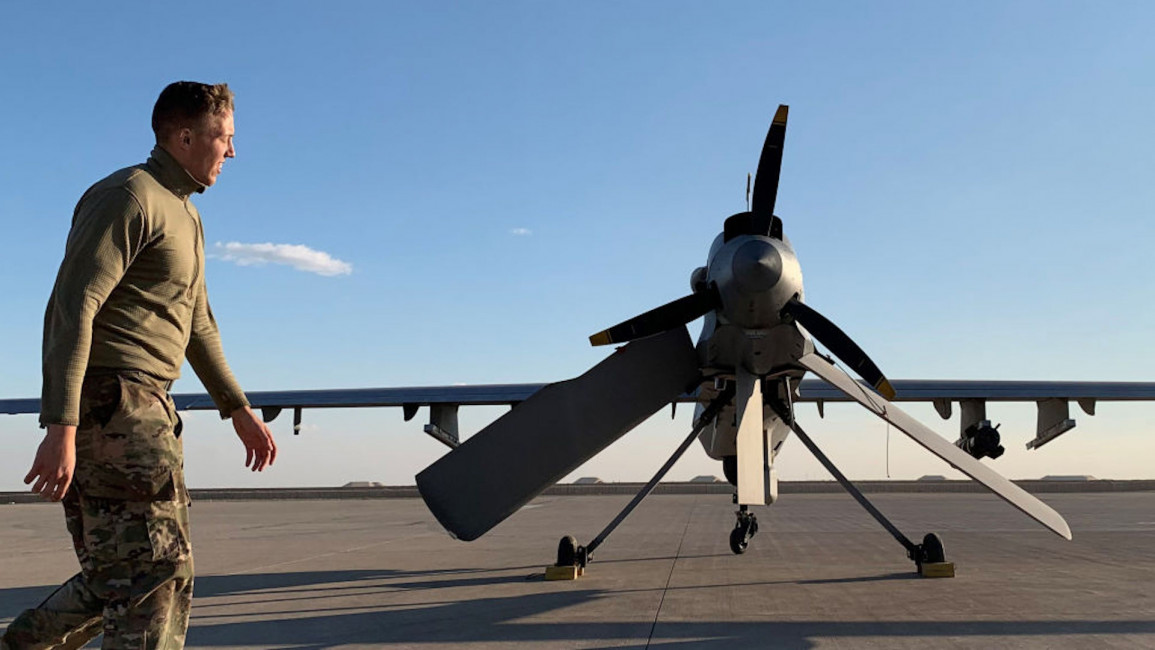US resumes joint military operations against IS in Iraq
Two US military officials quoted by The New York Times reported said the Pentagon wanted to resume these operations in order to pick up the fight against the Islamic State group.
Washington began the pause on 5 January, two days after the strike that killed Iranian general Qasem Soleimani at Baghdad airport.
On the same day of the suspension of military action, furious Iraqi lawmakers voted to expel the more than 5,000 US troops that are in Iraq.
Read more: US military should take the Iraqi parliament's advice and leave
Iraq's parliament passed a resolution urging the government to end the presence of all foreign troops in the country, just days after a US drone strike killed a top Iranian commander.
"The parliament has voted to commit the Iraqi government to cancel its request to the international coalition for help to fight IS," Speaker Mohammed Halbusi announced.
Iraq also said it had submitted complaints to the United Nations Security Council over US strikes on Iraq that killed the commanders.
Twitter Post
|
The Iraqi foreign ministry also said it summoned US ambassador Matthew Tueller to condemn the American strikes.
"They were a blatant violation of Iraqi sovereignty," the ministry said in a statement, and "contradict the agreed-upon missions of the international coalition".
It was not immediately clear if anyone in the Iraqi government had approved the resumption of the joint military operations, the Times reported.
The Pentagon said it had no information to provide concerning a resumption when contacted by AFP.
Secretary of State Mike Pompeo said Monday that Iraqi leaders have told him privately they support the US troop presence, despite public appeals for them to leave.
"They won't say so publicly. But privately they all welcome the fact that America is still there executing its counter terror campaign," Pompeo said at a forum at Stanford University.
Soleimani was Iran's most powerful military commander, directing large-scale operations not just in Iraq but also in Syria and across the Middle East.

![Palestinians mourned the victims of an Israeli strike on Deir al-Balah [Getty]](/sites/default/files/styles/image_684x385/public/2024-11/GettyImages-2182362043.jpg?h=199d8c1f&itok=xSHZFbmc)


![The law could be enforced against teachers without prior notice [Getty]](/sites/default/files/styles/image_684x385/public/2178740715.jpeg?h=a5f2f23a&itok=hnqrCS4x)
 Follow the Middle East's top stories in English at The New Arab on Google News
Follow the Middle East's top stories in English at The New Arab on Google News
![Left-wing candidate Jill Stein campaigns in Michigan in October [Getty]](/sites/default/files/styles/image_330x185/public/2024-11/GettyImages-2176828619.jpg?h=199d8c1f&itok=h2FXzBuP)

![The law could be enforced against teachers without prior notice [Getty]](/sites/default/files/styles/image_330x185/public/2178740715.jpeg?h=a5f2f23a&itok=xMdFOAIF)